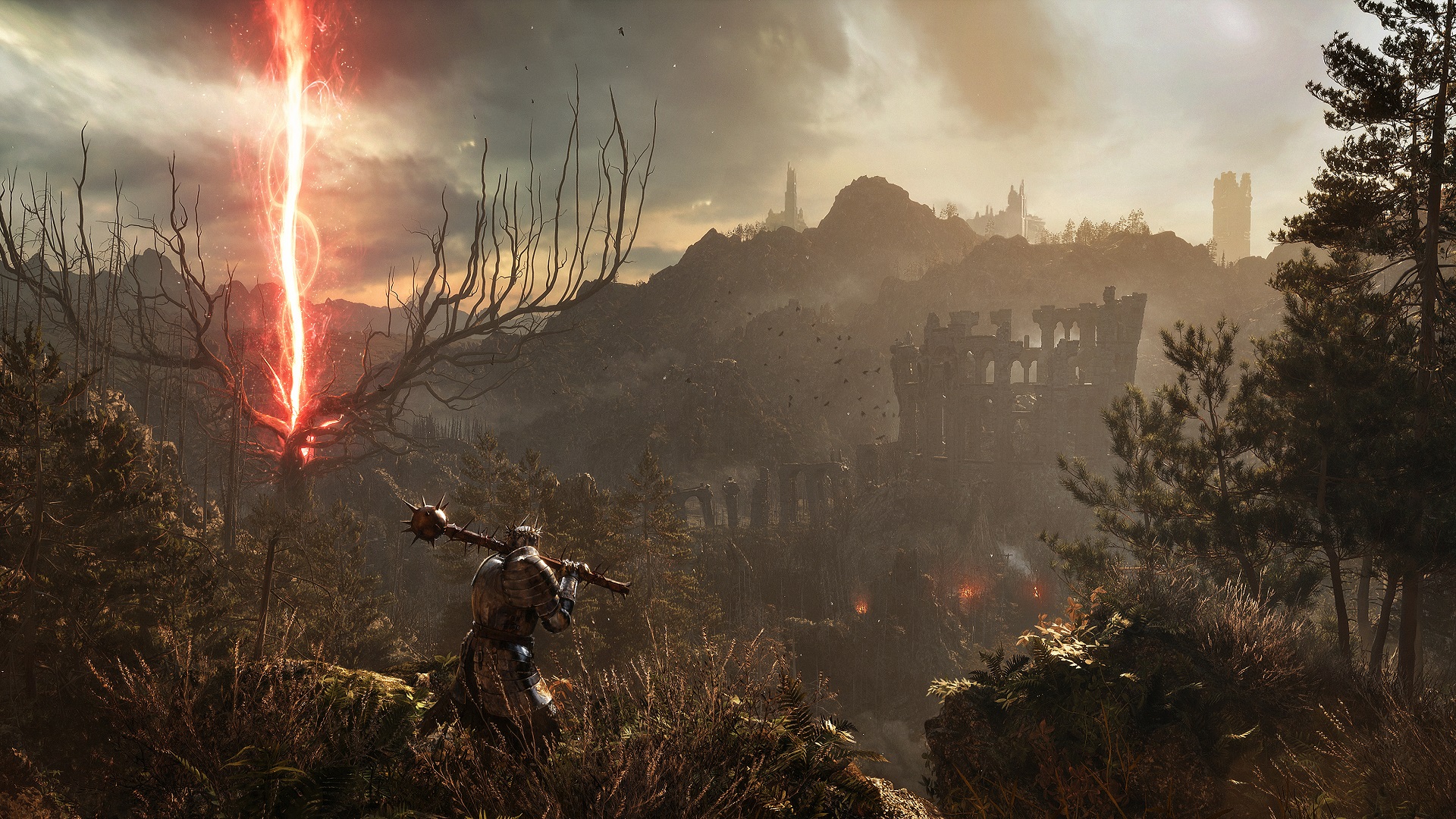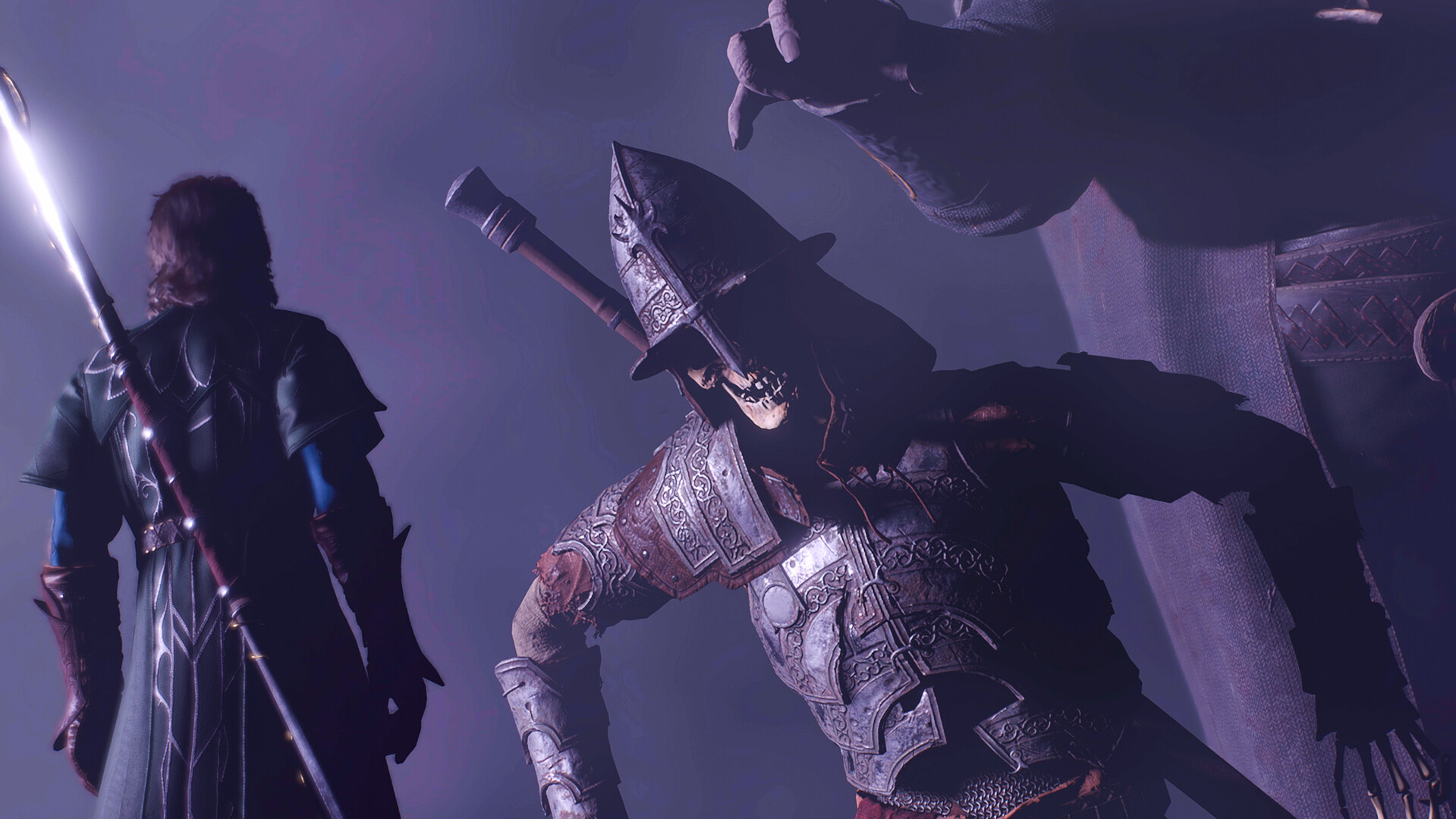Ultra-Indie Spotlight Sundays – Locked Up
Hello hello, you hellish hooligans and haphazard harlequins! Welcome back to another installment of Ultra-Indie Spotlight Sundays. This week, we return to the loving embrace of the itch.io storefront to find another free game. More specifically, a free demo for a totally real and of course going to happen much larger project. Oh itch.io. Never change. Does Locked Up have what it takes to sell me on a full game? Let’s find out!

Conceptual Meta-Wank:
Every once in a while, a game fundamentally reshapes the baseline of how we describe future games. Around 30 years ago, every new shooter was known as a “Doom clone.” Resident Evil 4 came to define an entire generation of third-person action/horror games. You can’t make an ARPG with stamina without someone calling it a Souls-like. Metroidvania, battle royale, DOTA-clone, the list goes on. Such comparisons are often clumsy, but ultimately succinctly descriptive. Games don’t exist in a vacuum. A vast majority of new games are some kind of minor tweak on the formula. Eventually, those minor tweaks add up to something unrecognizable. I was playing a shooter the other day that described itself as, “inspired by Dark Souls,” when all it had was basically Quake with a checkpoint system that refilled your healing flask.
As a result, we often lose sight of exactly what qualities made these titles stand out in the first place. Is Dark Souls memorable for how you could block, parry, backstab, and run out of stamina? Sure, in part. But there was also the minimalist storytelling, the looping level design, obtuse and expansive secrets, crushing difficulty, and a million other smaller factors. It’s worth remembering that the titles that come to define a genre are often not the first ones to try these new mechanics/ideas. Since its release in 2014, P.T. has served as such a baseline for describing new horror games. Is it the first game that had you walking through a spooky house? Certainly not. Gone Home, Dear Esther, and Amnesia: The Dark Descent are three previous “walking through a spooky place while inspecting things” games that I just thought of off the top of my head. So why is it that these similarly exceptional games have fallen more to the wayside while P.T. remains a baseline of comparison? I’d postulate that the core gameplay loop of walking through a hallway over and over has very little to do with what makes P.T. so memorable. It’s the pacing, tone, mystery, and obtuse puzzling of P.T. that gives it its legendary status. To date, roughly 17 trillion games have come out that try to replicate the looping environment of P.T.. Locked Up is the first game I’ve played in a while that also remembers to replicate all of those other elements.

Non-Wanky Game Recap:
There’s nothing that immediately gives Locked Up away as anything special amongst the sea of similar P.T. inspired indie horror projects. I found the game yesterday when doing my weekly wading into the brackish tidepool of itch.io to find the least toxic anemone to digest for 12-16 paragraphs. I had already nibbled on six duds and expected Locked Up to be just another forgettable bump on my road to disillusionment. Locked Up takes place in three rooms. You play as some person who presumably has a relationship with the house and its implied dark past. I normally try to be specific in this segment, but the game’s description does fuck all to help you understand what’s going on. English is clearly the developer EMIKA_GAMES’ second, if not third or fourth language. This doesn’t really affect the game since most of the stoy is told without dialogue.
You play Locked Up by going between the three rooms and inspecting objects until something happens. Sometimes you need to inspect all the pictures before a baby’s cry prompts you to move into the next room. Sometimes you need to figure out what object needs to be moved. Sometimes you just need to wait. It’s never really clear what you should be doing. While some of the keys to progression are more obvious than others, you’ll inevitably run into several moments where you can’t for the life of you figure out what the fuck to do. What’s more, you aren’t sure if there even is a fuck to do what to. As the game sometimes just makes you wait, you’re never certain if you’re trapped by the whims of the developer or out of your own inability to divine their intention. It’s frustrating, confusing, and easily the best part of the game.

What Works:
It might sound counterintuitive, but that level of confusion is what makes Locked Up click. Similar to P.T., the game gives you some obvious key interactable objectives (in both cases, large doors). You fiddle around with the door until you realize that’s going nowhere, at which point you start focusing on the smaller details of the environment. It makes you re-evaluate what is and isn’t a key objective. Horror games tend to condition you to hunt for specific elements to the environment: a bright light signaling the way forward, a shining key you need to collect, a trail of enemies to be blasted through, etc. Locked Up never gives you such obvious hints. By constantly setting up new invisible roadblocks and changing the rules, you never get to lull yourself into a comfortable rhythm. Every time you’re stumped, you need to re-evaluate and reabsorb your environment. Since the story is told visually, it forces you to take in details you would otherwise miss.
It’s fucking maddening. I’d often be clicking around the room just wondering what extra scrap of paper or picture I missed. Is that thumping in the background a signal that I progressed? Or just some random ambient thumping? At one point I even thought I heard the static on the T.V. change pitch slightly. Did it actually change? I have no idea. The game will frequently ramp into action by stringing several segments together that are easily solved, only to slam the brakes with another new obtuse puzzle. I truly felt as though I was the prisoner in Locked Up. Even figuring out what I needed to do was no guarantee of my salvation.

What Doesn’t Work:
There are two main categories that all of Locked Up‘s problems fall into. The first is design oversights. This includes items that are interactable in one variant of a room, and not in the next. Or drawers that you can never open, but for some reason still have a prompt for. It breaks flow to mislead the player with locked draws that they can never open, especially when the name of your game is to inspect everything ad nauseam. I know it sounds like the pickiest of nits, but when you have so few mechanics it’s crucial that no interactable object feels underdeveloped.
The second category is the limited budget. There are certain elements of the environment that just really don’t click. To the developers credit, each room has enough detail to warrant investigation. It’s just that certain key elements didn’t look great. The most glaring example is the doll. I don’t personally find dolls to be scary. I get that you are using them as a stand-in for an actual baby, but it just looked silly. The layout of the rooms also seemed nonsensical, with little indication as to how it fits in a larger house/apartment. When you do get to the third room, it’s pretty clear that Locked Up was reaching the end of its development cycle. It’s just a hallway with a dresser, mirror, grandfather clock, and three nails to hang pictures on. Maybe there’s something coming in the full game, but as it is it’s noticeably underdeveloped.

How To Fix It:
Most of Locked Up‘s problems can be solved with just a few QA sessions with a fresh pair of eyes. When developing a game, the creator can often get bogged down in the weeds of their specific vision. Elements like distracting drawers can go by without ever even being an afterthought. Given that the game is a demo, I’d recommend that EMIKA_GAMES watch people play the game and takes notes of what they most often are distracted by. Don’t actually listen to what gamers complain about. God knows that they’ll just want it to be another easy peasy hallway simulator.
I also have to assume that the barrenness of the third room is something that will be fixed in a full version. That is assuming that a full version is actually coming.

Wanky Musings:
It might seem contradictory to state that Locked Up‘s confusing mechanics and vague objectives are what make it good. Aren’t those what normally makes a game bad? That’s correct. There were several points during Locked Up where the critic inside me was screaming. “Why the fuck am I picking up blocks and putting them in a crib when A) I’ve never picked up anything in the game yet, B) there is no indication that this is actually doing anything and C) the controls explaining how to pick up are on a single sheet of paper on top of a VCR that I in no way was prompted to inspect.” I have to admit, there’s no real way for me to tell if Locked Up was meticulously designed or just an accident. It could very well be that EMIKA_GAMES has no idea what they are doing and just monkeys on typewritersed their way into an incredibly effective indie horror game. It’s either that or a masterclass in building tension and fucking with the player. There’s no middle ground.
I’m more inclined to lean towards the idea that it’s intentional. There are several moments in Locked Up where the game actively tries to scare you. These aren’t jump scares. They build on the game’s tension to a point where you are genuinely unnerved. Delivering these effective spooky climaxes requires an understanding of pacing that your average chimpanzee wouldn’t have. It’s not enough for me to declare EMIKA_GAMES a potential genius. But it does mean I’ll be watching their career with great interest.
If you want to try out Locked Up for yourself, you can get it now for free on itch.io. If you liked what you saw, consider joining me in supporting EMIKA_GAMES on Patreon. As it stands, I am literally the only person doing so.





EMIKA_GAMES
Thank you very much for the article! I am working to make it clear and interesting for everyone . This is my first solo project.
Ted Hentschke
Hey man if this is your first project, you’re on the right track! Keep at it 🙂